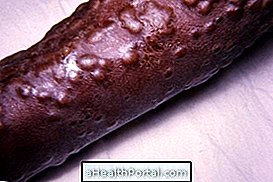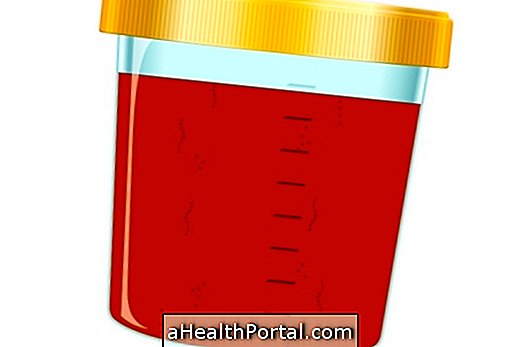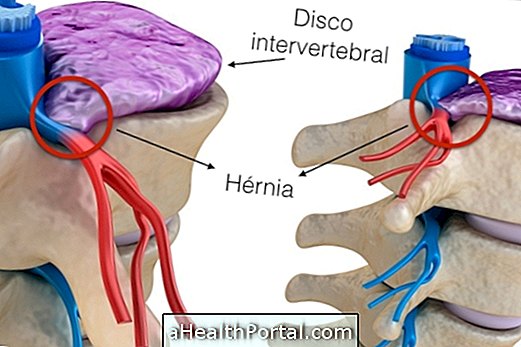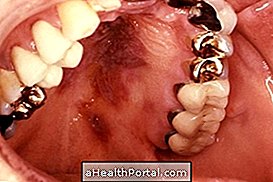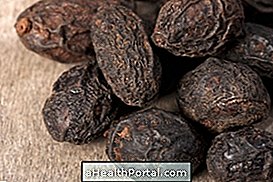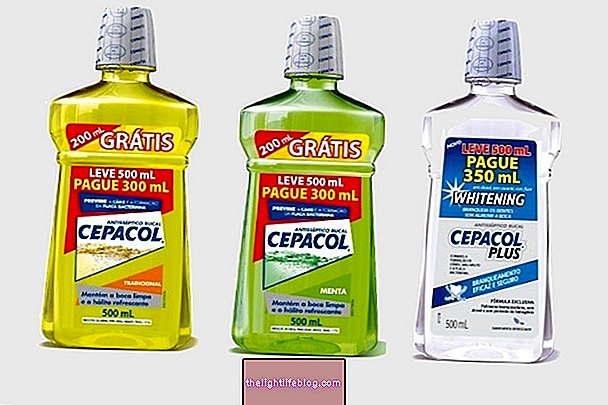The itching in the anus is a fairly common symptom that usually lasts a short time and is due to excessive perspiration or the presence of feces in the area, especially in children, who still do not know how to clean their buttocks properly.
However, when this itching is very intense or does not go away with the correct hygiene of the place, it can be caused by other conditions, such as presence of worms in the intestine or hemorrhoids, for example. Read more about the main type of worms that usually cause itching in the anus.
The itching in the anus usually heals and its treatment should be done with the correct hygiene of this region of the body and the use of corticosteroid-based ointments or zinc oxide and camphor ointment to relieve the discomfort in addition to the specific treatment for each cause .
What can cause itching in the anus
When the itching in the anus does not improve after 3 days, even with the correct hygiene of the region, it can be a sign of other problems that need specific treatment. If this is your case, select what you are feeling, in order to identify the possible cause for your itching:
- 1. Pain or difficulty in defecating Yes No
- 2. Presence of blood on toilet paper Yes No
- 3. Desquamation and redness in the anus Yes No
- 4. Presence of small white dots in the stool Yes No
- 5. Itching that arose after or during or after antibiotic use Yes No
- 6. Itching that appears or worsens after depilation, after wearing some sort of underwear or absorbent Yes No
- 7. Itching that arose after unprotected anal sex Yes No

In addition, it is also important to remember that constant use of toilet paper for cleaning the anus and steady intake of foods such as coffee, soda, milk, beer, wine, tomato, sour fruits, chocolate can also trigger anal itching.
Remedies for itching in the anus
Some remedies that can be used against anal itching are:
- Ointments with corticoid, such as Proctyl;
- Propolis ointment;
- Antiseptic talc with zinc oxide;
- Thiabendazole ointment in case of mycoses;
- Remedy for worms like Albendazole in case of infestation.
The treatment for itching in the anus should be directed to cure the underlying disease, if any such as hemorrhoids or psoriasis, for example.
Learn more about proctyl, one of the most commonly used ointments to treat itching in the anus.

Home remedy for anal itching
A good home remedy is to use a witch hazel ointment because it possesses astringent and anti-inflammatory action that calms the irritation.
Ingredients
- 60 ml of liquid paraffin
- 4 tablespoons of hamamel shells
- 60 ml glycerin
Method of preparation
Place the paraffin and witch hazel in a saucepan and boil for 5 minutes. Then strain and add to the mixture 30 ml of glycerin. Place in a covered container and store in the refrigerator. Use daily, whenever needed.
Some strategies that may help are:
- Give preference to cotton or linen underwear and avoid synthetic products;
- Always wash the anal area with soap and water, avoiding to the maximum the toilet paper;
- Avoid spicy foods, with pepper, garlic or wine, for example.
- Do not apply irritant products containing alcohol, dyes or perfume in the anal region, like moist handkerchief;
Treatment for oxyurius should be clinician-led and should always include the use of remedies and hygiene care with the anus. Read more details in: Treatment for oxyurius.
When to go to the doctor
If the anal itching persists for more than 15 days or is accompanied by pain and bleeding, it is essential to mark an appointment with a proctologist, to make the correct diagnosis and start the indicated treatment to relieve the symptoms.
